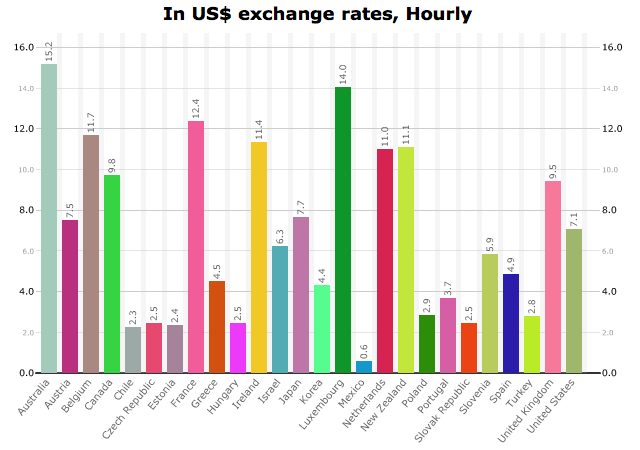I’m looking forward to reading Martin Ford’s [amazon_link id=”0465059996″ target=”_blank” ]The Rise of the Robots[/amazon_link] – it gets a good review in the FT today. Edward Luce calls it “well researched and disturbingly persuasive.”
[amazon_image id=”0465059996″ link=”true” target=”_blank” size=”medium” ]Rise of the Robots: Technology and the Threat of a Jobless Future[/amazon_image]
I’m still a robo-sceptic in the sense of thinking there is nothing inevitable about the employment and income distribution outcomes of skill-biased automation. It’s technological determinism to think otherwise, as the underlying technological waves are channelled through economic and political institutions. That’s not to say we shouldn’t be concerned. After all, there was a wave of automation in manufacturing in the late 1970s/early 1980s and the social consequences of that were devastating – the institutions handled the transition very badly.
There is an interesting recent (free) e-book collection of essays (including one of mine) from the IPPR, Technology, Globalization and the Future of Work. Also this recent paper, Robots at Work, by Georg Graetz and Guy Michaels. They find in a panel of data across industry in 17 countries, robotization increased total factor productivity and wages, although with some adverse effects on hours worked by low-skilled workers.

